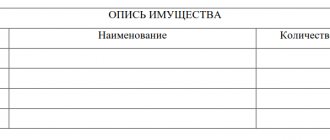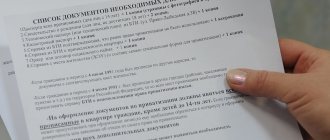Recognition of housing as unsuitable
The procedure for inspecting a house to determine whether it is unsuitable for citizens to live in or is unsafe is carried out on the basis of an application from the tenant or owner of the residential premises to the housing relations department of the Perm city administration
In connection with the transfer to the housing relations department of the Perm city administration of the authority to recognize premises as residential premises, residential premises unsuitable for habitation, an apartment building as unsafe and subject to demolition or reconstruction, as well as the privatization of residential premises from March 10, 2020, applications are accepted by sector specialists the work of the interdepartmental commission of the department for registration of rights and distribution of specialized funds at the address: st. Maxim Gorky, 18, room 201-203, visiting days: Tuesday, Thursday, from 10.00 to 17.00, break from 12.00 to 12.48, phone 212-70-31, 8-909-107-81-47.
The procedure for recognizing residential premises as unsuitable for permanent residence of citizens or in emergency conditions is based on the Decree of the Government of the Russian Federation dated January 28, 2006 No. 47 “On approval of the Regulations on recognizing premises as residential premises, residential premises as unsuitable for habitation, an apartment building in disrepair and subject to demolition or reconstruction, a garden house residential building and residential building garden house"
The recognition of a premises as residential, suitable (unsuitable) for citizens to live in, as well as the recognition of an apartment building as unsafe and subject to demolition is carried out by permanent interdepartmental commissions under the administrations of the districts of Perm based on an assessment of the compliance of these premises and houses with the requirements established in the above Regulations.
The commission includes representatives of local government, representatives of bodies authorized to carry out control and supervision in the areas of sanitary-epidemiological, fire, industrial, environmental and other safety, protection of consumer rights and human well-being, to carry out inventory and registration of real estate and other relevant organizations.
With the right of an advisory vote, the owner of the residential premises (a person authorized by him) can be involved in the work of the commission, and, in necessary cases, qualified experts from design and survey organizations with the right to a casting vote.
To recognize an apartment building as unsafe, a conclusion from a specialized organization conducting an inspection of the building must also be submitted.
If a residential premises is recognized as unfit for habitation, and an apartment building is in disrepair and subject to demolition, such residential premises and apartment buildings are included by the housing relations department in the List of unsuitable residential premises and emergency apartment buildings.
Based on the allocated amounts of funding for the resettlement of citizens from dilapidated and dilapidated housing stock, the city administration annually approves registers of houses subject to resettlement in the current financial year. Residents of houses included in the register of houses subject to resettlement are provided with living quarters by the housing relations department of the city administration.
How to recognize a house as unsafe?
Lawyer Antonov A.P.
A house is recognized as unsafe and subject to demolition or reconstruction if there are appropriate grounds and in the manner prescribed by law.
The procedure for recognizing a house as unsafe To recognize a house as unsafe, we recommend following the following algorithm.
Step 1. Decide whether there are grounds for recognizing the house as unsafe. Houses are recognized as unsafe, in particular if they (clauses 34, 36, 38 of the Regulations, approved by Decree of the Government of the Russian Federation of January 28, 2006 N 47): have an emergency technical condition load-bearing building structures or an apartment building as a whole, characterized by their destruction or damage and deformations indicating the exhaustion of the load-bearing capacity and the danger of collapse of the house, and (or) tilts that can cause loss of stability; located in dangerous zones of landslides, mudflows, snow avalanches, as well as in territories that are annually inundated with flood waters and in which it is impossible to prevent flooding of the territory using engineering and design solutions; located in an area of probable destruction due to man-made accidents or other circumstances that resulted in an emergency situation, if it is impossible to prevent destruction using engineering and design solutions; received damage, including as a result of explosions, accidents, fires, uneven soil subsidence, other complex geological phenomena, emergency situations, if restoration work is impossible or impractical and the technical condition of these houses and building structures is characterized by a decrease in bearing capacity and operational characteristics, with where there is a danger to the presence of people and the safety of engineering equipment.
Step 2. Prepare and submit documents to a special commission. The assessment and inspection of an apartment building (MAD) in order to recognize it as unsafe and subject to demolition or reconstruction is carried out by an interdepartmental commission created for these purposes. The decision to recognize an apartment building as unsafe and subject to demolition or reconstruction is made by the executive body of a constituent entity of the Russian Federation or a local government body. If the apartment building is in federal ownership, such a decision is made on the basis of the conclusion of the commission by the federal executive body exercising the powers of the owner. If the MKD belongs to the federal executive body or its subordinate enterprise (institution) on the basis of the commission’s conclusion (paragraph 1, paragraph 7 of Regulation No. 47; paragraph 1 of the Appendix to the Order of the Minister of Defense of the Russian Federation dated 01/11/2017 N 11). You need to submit, in particular, the following documents to the interdepartmental commission at the location of the residential premises (clause 45 of Regulation No. 47): an application to recognize the apartment building as unsafe and subject to demolition or reconstruction; conclusion of a specialized organization that conducted the MCD examination. You can, on your own initiative, also provide information from the Unified State Register of Real Estate on the rights to residential premises and the technical passport of the residential premises (clauses 45, 45(2) of Regulation No. 47). The application and the documents attached to it can be submitted on paper in person or by mail with receipt of receipt, or in the form of electronic documents using the Unified Portal of Public Services, a regional portal (if available) or through the MFC (paragraph 8 of clause 45 of Regulation No. 47) . Additionally, we note that in Moscow you can contact the state housing inspectorate regarding this problem. It makes a decision to submit a conclusion on recognizing an apartment building as unsafe for consideration by the above-mentioned interdepartmental commission, and also carries out housing supervision over compliance with the mandatory requirements for the procedure for recognizing an apartment building as an emergency (Article 20 of the Housing Code of the Russian Federation; clauses 4.2.7, 4.3.1.4 of the Regulations, approved by Decree of the Moscow Government dated July 26, 2011 N 336-PP). It should be borne in mind that if residential premises were damaged as a result of an emergency situation, the commission makes a decision on the basis of a consolidated list of objects (residential premises) located within the boundaries of the emergency zone (hereinafter referred to as the consolidated list), formed and approved by the subject of the Russian Federation on the basis information obtained through interdepartmental interaction from the Unified State Register of Real Estate (paragraph 1, clause 42 of Regulation No. 47). In this case, no documents are required to be submitted (clause 45(1) of Regulation No. 47). The owner, copyright holder or tenant of a residential premises that was damaged as a result of an emergency has the right to apply to the commission if the specified premises are not included in the consolidated list (paragraph 2, paragraph 42 of Regulation No. 47).
Step 3. Receive a decision to recognize the house as unsafe. The interdepartmental commission considers the received application within 30 calendar days, and the consolidated list or application of the owner, legal holder or tenant of the residential premises that was damaged as a result of the emergency and is not included in the consolidated list - within 20 calendar days and makes a decision in the form of a conclusion on assessing the compliance of the MKD with the established requirements or a decision to conduct an additional examination. In case of failure to provide the necessary documents and the impossibility of requesting them through interdepartmental cooperation, the application is returned without consideration (clause 46 of Regulation No. 47). If additional examination is not required, the commission will make one of the following decisions (conclusions) (clauses 46, 47 of Regulation No. 47): on identifying the grounds for recognizing the apartment building as unsafe and subject to reconstruction; on identifying the grounds for recognizing the apartment building as unsafe and subject to demolition; about the absence of grounds for recognizing the apartment building as unsafe and subject to demolition or reconstruction. The commission’s conclusion is sent to the authorized body within three days to make a decision on recognizing the house as unsafe (clause 7, 47(1) of Regulation No. 47). If factors are identified that pose a particular danger to human life and health or pose a threat of destruction of the building due to its emergency condition, the commission’s conclusion is sent to the relevant authority, the owner of the property and the applicant no later than the working day following the day the decision is issued (clause 51 of the Regulations N 47). If the apartment building is recognized as unsafe and subject to demolition or reconstruction within five years from the date of issuance of permission to put it into operation for reasons not related to natural disasters and other force majeure circumstances, the commission will send a conclusion to the prosecutor’s office within five days (clause 51 of the Regulations N 47). Based on the received conclusion of the commission on identifying the grounds for recognizing the apartment building as emergency, the relevant authorized body, within 30 calendar days, and in the case of inspection of residential premises affected by an emergency, within 10 calendar days from the date of receipt of the conclusion, makes a decision on recognizing the apartment building as emergency and subject to demolition or reconstruction and issues, in particular, an order indicating the timing of the resettlement of citizens. Within five days from the date of adoption of this decision, the authorized body sends one copy of the order and conclusion of the commission to the applicant and to the state (municipal) housing supervision (control) body at the location of the apartment building (clauses 49, 51 of Regulation No. 47). The decision of the authorized body, as well as the conclusion of the interdepartmental commission, can be appealed by interested parties in court. It should be taken into account that resolving the issue of recognizing a house as unsafe is not within the powers of the judicial authorities (clause 52 of Regulation No. 47; section I of the Review of Judicial Practice, approved by the Presidium of the Supreme Court of the Russian Federation on April 29, 2014).
Consequences of recognizing a house as unsafe If an apartment building is recognized as unsafe and subject to demolition, the residential premises in such a house are unsuitable for living, rental and lease agreements for residential premises are terminated (clauses 34, 50 of Regulation No. 47). If an apartment building is included in a regional targeted program for the resettlement of citizens from emergency housing stock, then the owners of residential premises in such a house, at their choice, have the right to be provided with another residential premises in exchange for the seized one or to receive compensation for the seized residential premises (Parts 6 - 8, 10 of Art. 32 LC RF; clause 3 article 2, parts 1, 2, 6 article 16 of the Law of July 21, 2007 N 185-FZ; section II of the Review of Judicial Practice, approved by the Presidium of the Supreme Court of the Russian Federation on April 29, 2014). An exception is made for citizens who acquired ownership of residential premises (except for the acquisition of ownership by inheritance) after the apartment building was recognized in the prescribed manner as unsafe and subject to demolition or reconstruction. These persons have the right only to payment of appropriate compensation (Part 8.2 of Article 32 of the RF Housing Code; Letter of the Ministry of Construction of Russia dated 04/17/2020 N 15026-ME/06). In addition, government authorities of a constituent entity of the Russian Federation may establish additional support measures (in particular, in the form of subsidies for the purchase (construction) of housing or reimbursement of expenses for paying interest on a corresponding loan) for owners of residential premises who, on the date of recognition of an apartment building as unsafe and subject to demolition or reconstruction there are no other residential premises suitable for permanent residence (part 8.1 of article 32 of the Housing Code of the Russian Federation; clause 3 of part 6 of article 16 of the Law of July 21, 2007 N 185-FZ; Information from the State Corporation “Fund for Assistance to Housing and Communal Services Reform” ). If the apartment building is not included in the regional targeted program for the resettlement of citizens from emergency housing stock, then the owners of residential premises in such a house can also only count on payment of compensation to them, unless otherwise provided by an agreement with a state authority or local government (Parts 1, 8 Article 32 of the RF Housing Code, Section II of the Review). Tenants of residential premises in apartment buildings under social tenancy agreements are provided with other residential premises, which must be comfortable in relation to the conditions of the relevant locality, equivalent in total area to the previously occupied residential premises, meet established requirements and be located within the boundaries of this locality (Article 86). , 87.2, part 1, 2 of article 89 of the Housing Code of the Russian Federation).
Sincerely, lawyer Anatoly Antonov, managing partner of the law firm Antonov and Partners.
Still have questions for your lawyer?
Ask them right now here, or call us by phone in Moscow +7 (499) 288-34-32 or in Samara +7 (846) 212-99-71 (24 hours a day), or come to our office for a consultation (by pre-registration)!
Pre-trial (out-of-court) procedure for appealing decisions and actions (inaction) of the prefecture, the State Budgetary Institution of the MFC of the city of Moscow, officials of the prefecture, employees of the MFC
1. The applicant has the right to file a pre-trial (extrajudicial) complaint against the decisions and (or) actions (inactions) of the prefecture, the State Budgetary Institution of the MFC of the city of Moscow and their officials, state civil servants of the city of Moscow passing the state civil service of the city of Moscow in the prefecture, employees of the MFC.
2. The filing and consideration of complaints is carried out in the manner established by Chapter 2.1 of the Federal Law of July 27, 2010 No. 210-FZ “On the organization of the provision of state and municipal services”, the Regulations on the specifics of filing and consideration of complaints about violations of the procedure for the provision of public services in the city of Moscow , approved by Decree of the Moscow Government of November 15, 2011 No. 546-PP “On the provision of state and municipal services in the city of Moscow”, Administrative Regulations for the provision of services.
3. Applicants may file complaints in the following cases:
3.1. Violations of the deadline for registering a request (application) and other documents necessary for the provision of public services, as well as the procedure for processing and issuing a receipt for receiving a request and other documents (information) from the applicant.
3.2. Requirements from the applicant:
3.2.1. Documents, the submission of which by the applicant for the provision of public services is not provided for by the regulatory legal acts of the Russian Federation and the city of Moscow, including documents obtained using interdepartmental information interaction.
3.2.2. Applications for the provision of services not included in the list of services approved by the Moscow Government that are necessary and mandatory for the provision of public services.
3.2.3. Payment of fees for the provision of public services not provided for by regulatory legal acts of the Russian Federation and the city of Moscow.
3.3. Violations of the deadline for the provision of public services.
3.4. Refusal to the applicant:
3.4.1. In accepting documents, the submission of which is provided for by the regulatory legal acts of the Russian Federation and the city of Moscow for the provision of public services, on grounds not provided for by the regulatory legal acts of the Russian Federation and the city of Moscow.
3.4.2. In the provision of public services on grounds not provided for by the regulatory legal acts of the Russian Federation and the city of Moscow.
3.4.3. In the correction of typographical errors and errors in documents issued as a result of the provision of public services, or in case of violation of the established deadline for such corrections.
3.5. Other violations of the procedure for providing public services established by regulatory legal acts of the Russian Federation and the city of Moscow.
4. Complaints about decisions and (or) actions (inaction) of officials, state civil servants of the prefecture are considered by the prefect (authorized deputy prefect).
Complaints about decisions and (or) actions (inaction) of the prefect, including decisions made by him or his authorized deputy on complaints received in a pre-trial (extrajudicial) manner, are considered by a higher executive body of the city of Moscow in accordance with paragraphs 5.6, 6 of the appendix 6 to the resolution of the Moscow Government of November 15, 2011
No. 546-PP “On the provision of state and municipal services in the city of Moscow.”
Complaints about decisions and (or) actions (inaction) of MFC employees committed in the provision of government services in accordance with the interaction agreement concluded with the prefecture are considered by the director (authorized deputy director) of the State Budgetary Institution of the MFC of the city of Moscow.
Complaints against decisions and (or) actions (inaction) of the director (authorized deputy director) of the State Budgetary Institution MFC of the city of Moscow, accepted on complaints received in a pre-trial (extrajudicial) manner, are considered by the Office of the Mayor and the Government of Moscow.
5. Complaints can be submitted to the executive authorities of the city of Moscow, local government bodies, organizations subordinate to them authorized to consider complaints in accordance with the Administrative Regulations for the provision of services (hereinafter referred to as the bodies and organizations authorized to consider complaints), in writing on paper media, in electronic form, in one of the following ways:
5.1. Upon personal application by the applicant (applicant’s representative).
5.2. Through MFC.
5.3. By post.
5.4. Using the official websites of bodies and organizations authorized to consider complaints on the Internet.
6. The complaint must contain:
6.1. The name of the body (organization) authorized to consider the complaint or the position and (or) last name, first name and patronymic (if any) of the relevant official to whom the complaint is sent.
6.2. The name of the executive authority of the city of Moscow, the MFC or the position and (or) surname, first name, patronymic (if any) of the official, state civil servant of the city of Moscow, employee of the MFC, whose decisions and (or) actions (inaction) are being appealed.
6.3. Last name, first name, patronymic (if available), information about the place of residence of the applicant - an individual or name, information about the location of the applicant - a legal entity, as well as contact telephone number(s), email address(es) (if available) and postal address to which the response should be sent to the applicant.
6.4. The date of submission and registration number of the request (application) for the provision of a public service (except for cases of appealing the refusal to accept the request and its registration).
6.5. Information about decisions and (or) actions (inactions) that are the subject of appeal.
6.6. Arguments on the basis of which the applicant does not agree with the appealed decisions and (or) actions (inactions). The applicant may submit documents (if any) confirming the applicant’s arguments, or copies thereof.
6.7. Applicant's requirements.
6.8. List of documents attached to the complaint (if any).
6.9. Date of filing the complaint.
7. The complaint must be signed by the applicant (his representative). If a complaint is filed in person, the applicant (applicant's representative) must provide an identification document.
The authority of the representative to sign the complaint must be confirmed by a power of attorney issued in accordance with the legislation of the Russian Federation.
The powers of a person acting on behalf of an organization without a power of attorney on the basis of the law, other regulatory legal acts and constituent documents are confirmed by documents certifying his official position, as well as the constituent documents of the organization.
The status and powers of legal representatives of an individual are confirmed by documents provided for by federal laws.
8. A received complaint must be registered no later than the working day following the day of receipt.
9. The maximum period for consideration of a complaint is 15 working days from the date of its registration. The period for consideration of the complaint is 5 working days from the date of its registration in cases of appeal by the applicant:
9.1. Refusal to accept documents.
9.2. Refusal to correct typos and errors made in documents issued as a result of the provision of public services.
9.3. Violations of the deadline for correcting typos and errors.
10. Based on the results of consideration of the complaint, a decision is made to satisfy the complaint (in whole or in part) or to refuse to satisfy the complaint.
11. The decision must contain:
11.1. The name of the body or organization that considered the complaint, position, surname, first name, patronymic (if any) of the official who made the decision on the complaint.
11.2. Details of the decision (number, date, place of adoption).
11.3. Last name, first name, patronymic (if any), information about the place of residence of the applicant - an individual or name, information about the location of the applicant - a legal entity.
11.4. Last name, first name, patronymic (if any), information about the place of residence of the applicant’s representative who filed the complaint on behalf of the applicant.
11.5. Method of filing and date of registration of the complaint, its registration number.
11.6. Subject of the complaint (information about the decisions, actions, or inactions being appealed).
11.7. The circumstances established during the consideration of the complaint and the evidence confirming them.
11.8. Legal grounds for making a decision on a complaint with reference to the applicable regulatory legal acts of the Russian Federation and the city of Moscow.
11.9. The decision taken on the complaint (conclusion on the satisfaction of the complaint or refusal to satisfy it).
11.10. Measures to eliminate identified violations and deadlines for their implementation (if the complaint is satisfied).
11.11. Procedure for appealing a decision.
11.12. Signature of the authorized official.
12. The decision is made in writing using official forms.
13. The measures to eliminate identified violations specified in the decision include:
13.1. Cancellation of previously made decisions (in whole or in part).
13.2. Ensuring the acceptance and registration of the request, execution and issuance of a receipt to the applicant (in case of evasion or unreasonable refusal to accept documents and their registration).
13.3. Ensuring registration and delivery to the applicant of the result of the provision of a public service (in case of evasion or unreasonable refusal to provide a public service).
13.4. Correction of typos and errors made in documents issued as a result of the provision of public services.
13.5. Refund to the applicant of funds, the collection of which is not provided for by the regulatory legal acts of the Russian Federation and the city of Moscow.
14. The body or organization authorized to consider the complaint refuses to satisfy it in the following cases:
14.1. Recognition of the appealed decisions and (or) actions (inactions) as legal and not violating the rights and freedoms of the applicant.
14.2. Filing a complaint by a person whose powers have not been confirmed in the manner established by regulatory legal acts of the Russian Federation and the city of Moscow.
14.3. The applicant does not have the right to receive public services.
14.4. Availability:
14.4.1. A judicial act on the applicant’s complaint with identical subject matter and grounds that has entered into legal force.
14.4.2. Decisions on a complaint made earlier in a pre-trial (out-of-court) manner in relation to the same applicant and on the same subject of the complaint (except for cases of appealing previously made decisions to a higher authority).
15. The complaint must be left unanswered on its merits in the following cases:
15.1. The presence in the complaint of obscene or offensive language, threats to the life, health and property of officials, as well as members of their families.
15.2. If the text of the complaint (part of it), last name, postal address and email address are not readable.
15.3. If the complaint does not indicate the name of the applicant (the applicant's representative) or the postal address and email address to which the response should be sent.
15.4. If the body or organization authorized to consider the complaint received a request from the applicant (the applicant’s representative) to withdraw the complaint before a decision on the complaint is made.
16. The decision to satisfy the complaint or to refuse to satisfy the complaint is sent to the applicant (the applicant’s representative) no later than the working day following the day of its adoption, to the postal address specified in the complaint. At the request of the applicant, the decision is also sent to the email address specified in the complaint (in the form of an electronic document signed with the electronic signature of an authorized official). In the same manner, the applicant (the applicant’s representative) is sent a decision on the complaint, in which only an email address is indicated for the response, and the postal address is missing or cannot be read.
17. If the complaint is left unanswered on the merits, the applicant (his representative) is sent, no later than the working day following the day of registration of the complaint, a written motivated notification indicating the grounds (except for cases where the postal address and email address are not indicated in the complaint email for a response or they are unreadable). The notice is sent in the manner established for sending a decision on a complaint.
18. A complaint filed in violation of the rules on competence established by clause 5.4 of the Administrative Regulations for the provision of services is sent no later than the working day following the day of its registration to the body authorized to consider the complaint, with simultaneous written notification to the applicant (his representative) about forwarding the complaint (except for cases where the complaint does not indicate the postal address and email address for a response or they are not legible). The notice is sent in the manner established for sending a decision on a complaint.
19. Filing a complaint in a pre-trial (out-of-court) manner does not exclude the right of the applicant (applicant’s representative) to simultaneously or subsequently file a complaint in court.
20. Informing applicants about the judicial and pre-trial (extrajudicial) procedure for appealing decisions and (or) actions (inactions) committed in the provision of public services should be carried out by:
20.1. Placing relevant information on information stands or other sources of information in places where public services are provided.
20.2. Consulting applicants, including by telephone, email, and in person.
21. If, during or as a result of consideration of a complaint, signs of an administrative offense or crime are established, the official empowered to consider the complaint immediately forwards the available materials to the prosecutor's office.
If violations of the procedure for the provision of public services of the city of Moscow are identified, the responsibility for which is established by the Code of the City of Moscow on Administrative Offenses, the official empowered to consider the complaint must also send copies of the available materials to the Main Control Department of the city of Moscow within two working days following after the day the decision on the complaint was made (but no later than the working day following the day of expiration of the period established by the legislation of the Russian Federation for consideration of complaints about violations of the procedure for the provision of public services).
Recognition of residential premises as suitable for habitation
A single mother of 2 minor children has contacted you. In January of this year
I bought a house in the Arsky district, the village of Syurda, at the expense of Maternal Capital. The house looks good but
when I collected the documents to register myself and my children there, the Syurdinsky Administration
rural settlement handed me a NOTICE in accordance with the Regulations on the recognition of the premises
residential premises, residential premises not suitable for living and an apartment building
emergency and subject to demolition, approved by the Decree of the Government of the Russian Federation
dated January 28, 2006 N47, by the regional interdepartmental commission on recognition of premises as residential premises, residential premises - unsuitable for habitation and apartment buildings - emergency and subject to
The demolition department adopted a conclusion dated 07/09/2010 N454 that the residential premises at the address: RT. Arsky district, Syurda village, Sovetskaya st., 71 were recognized as unsuitable for habitation. In accordance with the above, for further residence in house No. 71 on Sovetskaya Street, before October 1, 2012, it is necessary to carry out reconstruction, that is, repair and restoration work and obtain the conclusion of the interdepartmental commission of the Arsky District Executive Committee on the suitability of the residential premises for permanent residence, otherwise we will be forced to carry out
demolition of unsuitable residential premises. And after that I turned to the former owners with the question, what should I do? To which they replied that it was none of their business and solve your problems yourself, for
After living in this house for a long time, I will need about 300,000 thousand rubles for reconstruction.
I myself do not work, since my daughter is disabled, and as a means of caring for a disabled person, I receive monthly
1200 thousand rubles, the pension consists of 7250 thousand rubles. For this amount I should do restoration or buy expensive drugs for my daughter, although this amount is not enough for her; the child is disabled with a diagnosis of Acute glomerulonephritis with a nephric form, a hormone-dependent variant, a relapsing course, an exacerbation period ( relapse 2), with NFP
acute period. Then I went to court, on November 12 of this year the judge
The Arsky District made a decision: to consider the purchase and sale agreement invalid and to recover from the sellers of this house the amount for which I bought the house. but the court decision comes into force only on 14
December. At the moment, I am left homeless and with two children. The chairman of the Syurdinsky rural settlement knew that I was purchasing this house and nothing about the fact that the house was not habitable for me
I didn’t say, because I took all the certificates for purchasing this house at the expense of maternity capital from the Pension Fund. The Registration Chamber of the Arsky District was not aware that the house was not residential and was in disrepair, since the Selsoset of the Syurdinsky rural settlement did not notify
and did not take the documents from 07/09/2010. And with this plucking, the house was registered in my name. I will forgive you very much, help me and my children buy housing, since I have nowhere else to turn, without
prosiski my daughter will not be admitted to hospitals, and where I am currently registered there is not enough square meters for 11 family members. Through the fault of the Executive Committee of the Arsky Municipal District, I
and my children were left without housing, because they have no respect for society, and with such employees
who do not fulfill their official duty. I count on you with great hope and that you will help me
and for my children to buy housing for their long-term stay. With respect to the Nureyev Family itself.









